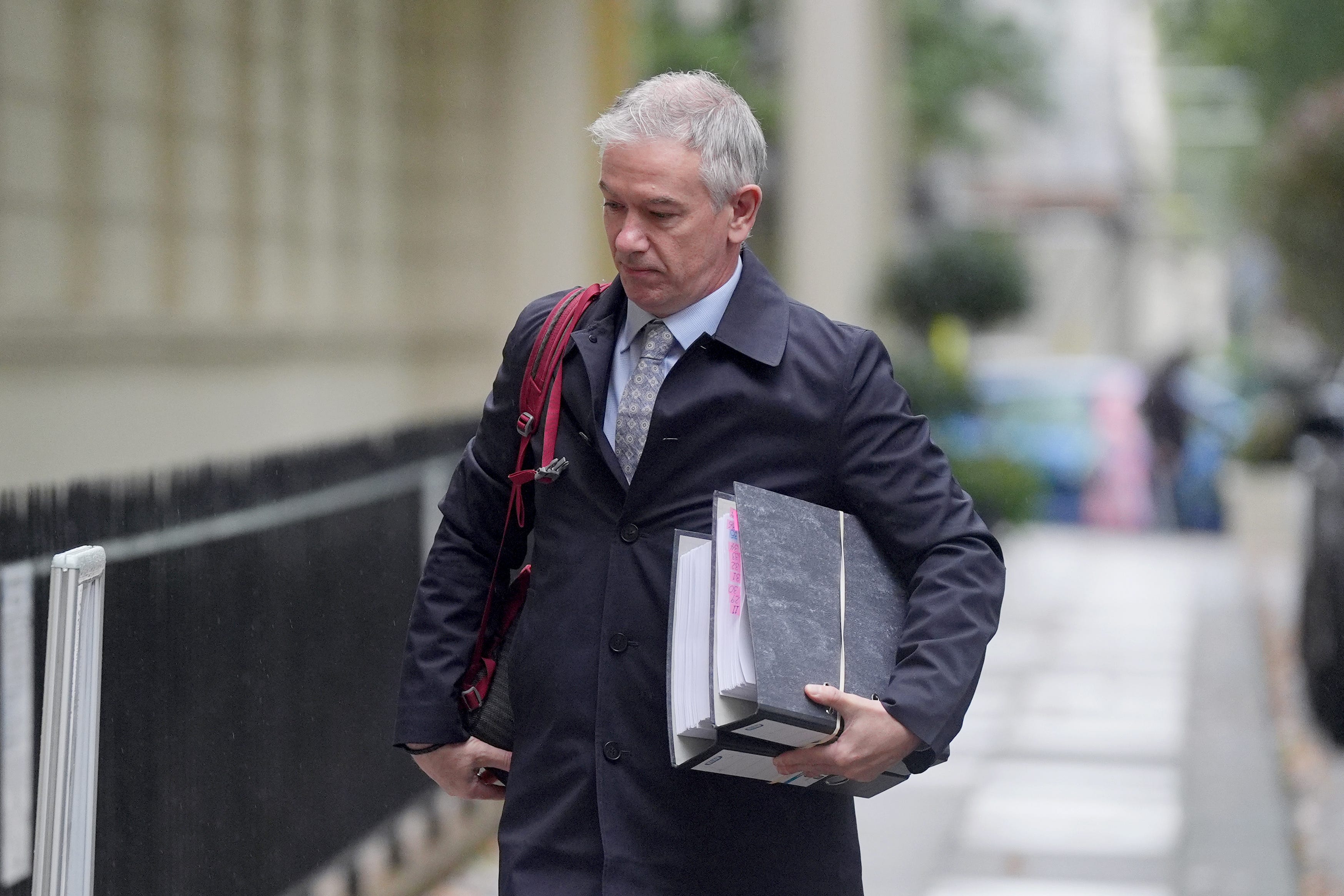Chief medical officer and team often worked 16-hour days, Covid inquiry told
Professor Sir Gregor Smith also said he needed to hire several deputies to deal with the workload as they attempted to keep ministers informed.

Your support helps us to tell the story
From reproductive rights to climate change to Big Tech, The Independent is on the ground when the story is developing. Whether it's investigating the financials of Elon Musk's pro-Trump PAC or producing our latest documentary, 'The A Word', which shines a light on the American women fighting for reproductive rights, we know how important it is to parse out the facts from the messaging.
At such a critical moment in US history, we need reporters on the ground. Your donation allows us to keep sending journalists to speak to both sides of the story.
The Independent is trusted by Americans across the entire political spectrum. And unlike many other quality news outlets, we choose not to lock Americans out of our reporting and analysis with paywalls. We believe quality journalism should be available to everyone, paid for by those who can afford it.
Your support makes all the difference.Scotland’s chief medical officer has told an inquiry how his team worked up to 16 hours a day, seven days a week, in their response to the Covid pandemic.
Professor Sir Gregor Smith told the UK Covid-19 Inquiry the “incredible” volume of work needing to be done to keep the Government up to date with the latest developments on the disease required him to appoint extra deputies to meet the challenge.
The inquiry is currently examining the impact of the pandemic on the health and social care system in Scotland as well as the NHS across Britain.
Sir Gregor told the inquiry on Wednesday he increased the number of deputy chief medical officers from one to three during the summer of 2020 to handle the increased workload.
“The volume of work was quite incredible at that point in time,” he said.
“One of the first steps that I took was to enhance that senior clinical team, but also to make sure we were making far better use of the other senior clinicians who worked within government as well such as the chief nursing officer.
“It was very evident that if we were going to service the volume of demands that we had from different parts of Government, we had to make sure there was adequate clinical capacity.”
Discussing the impact of the increased workload on his team, Sir Gregor admitted the regular requirement to work long hours took its toll.
“I don’t think my team was alone in working those types of hours,” he said. “I saw similar levels of commitment of government and the healthcare.
“It was a quite remarkable effort, but it did have an impact on us all. We were tired and it was stressful work, there is no getting away from that.
“There was very little respite from it. Working those excessive hours certainly has its toll, particularly as leave was just not an option.
“I can’t remember the first time I actually took leave as part of the response.
“It was tough, and it was tough not just for us, but for our loved ones and our friends as well.”
Sir Gregor also told the inquiry how it was often a case of having to make choices that would lead to less worse public health outcomes than others.
Asked by counsel for the inquiry to provide a specific example, he raised the cancellation of regular cancer screening.
He told the inquiry: “The most obvious example that I would give would be the decision to pause screening.
“I think that was taken in March 2020 by my predecessor, which was an incredibly difficult decision.
“But it was taken for reasons to try to free up staff and resources to be able to respond to the direct Covid harm.
“It certainly wasn’t an easy choice, but I think it was the right choice at that time.
“But no-one was unaware that it wasn’t without risk.”
The inquiry, before Lady Heather Hallett, continues.